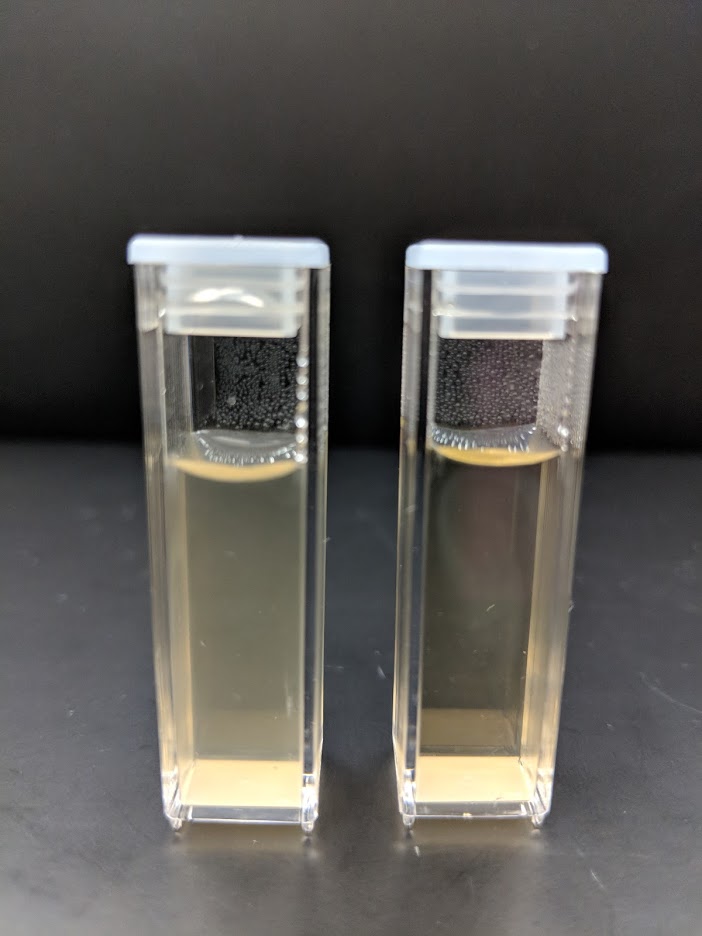Bacterial Process for Production of Active Coagulant Protein
Highly Effective, Scalable and Economic Solution for Clean Water

Untreated (left) and treated wastewater (right)
Biocoagulants are gaining attention because they are biodegradable, generally regarded as safe, and produce significantly less sludge than traditional inorganic coagulants. For example, seed extracts from the tropical plant Moringa oleifera greatly improve water quality by reducing particulate content to a level comparable with aluminum sulfate, the most commonly used inorganic coagulant, but without their recalcitrant nature. The purified seeds also show a significant reduction in turbidity in wastewater. However, the growth, harvesting, and extraction process of the seeds is laborious and costly.
ERDC’s novel method of producing active M. oleifera coagulant protein (MOCP) in a bacterium, Bacillus subtilis, offers a scalable solution. The method has similar water clarification capabilities as the extracted M. oleifera seeds but at one-sixth the amount of protein, dramatically reducing the organic load going into a treatment system. The B. subtilis strain not only secretes MOCP when grown on a rich medium but also when grown on a nutrient-limited substrate.
Benefits:
- Scalable solution with the benefits of M. oleifera: This technology offers the ability to mass-produce highly effective coagulation proteins typically harvested from M. oleifera.
- Potential to produce valuable biocoagulant from waste: The B. subtilis strain produces significant amounts of MOCP when incubated with synthetic black water, suggesting it is serving as a nutrient source for efficient expression and secretion. This could be used to treat both water supplies and wastewater more economically than traditional coagulants.
- Reduced operational costs: Using engineered bacteria that can secrete active coagulant protein when grown on wastewater has the potential to significantly reduce operational cost by decreasing or eliminating the need for inorganic coagulants.
- Commercially attractive: The use of B. subtilis is advantageous because of its nonpathogenic nature, ability to grow well on relatively low-nutrient feedstocks, and ease of genetic modification. Additionally, it does not produce endotoxin and can secrete large amounts of recombinant protein into the surrounding media. This capability significantly simplifies protein recovery by eliminating the need to extract the MOCP from the bacterium cell.
Applications:
- Drinking water
- Human wastewater
- Industrial wastewater and water supplies
- Farm irrigation water
